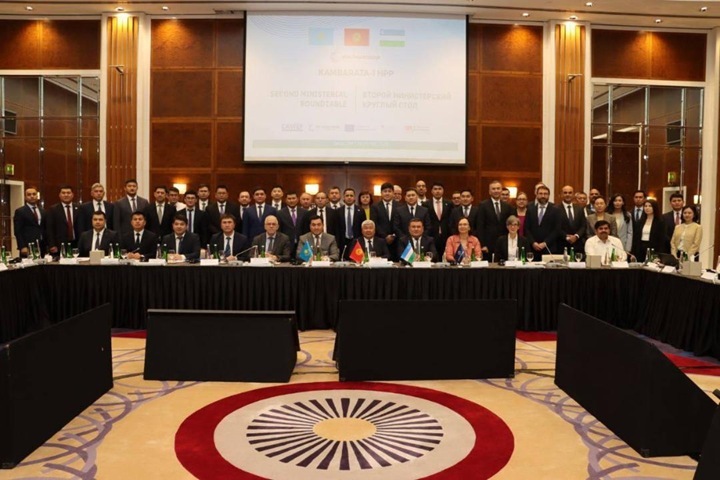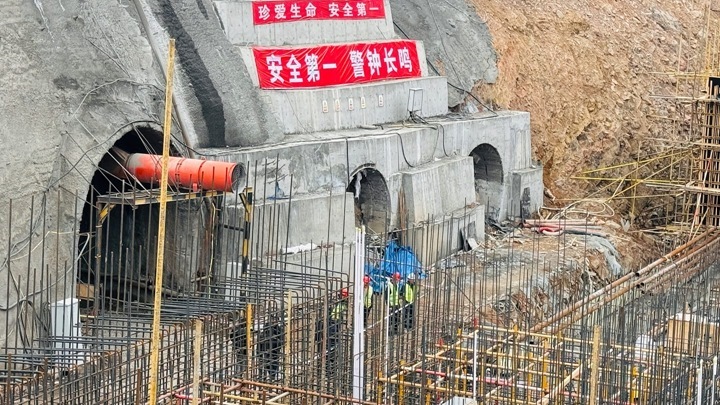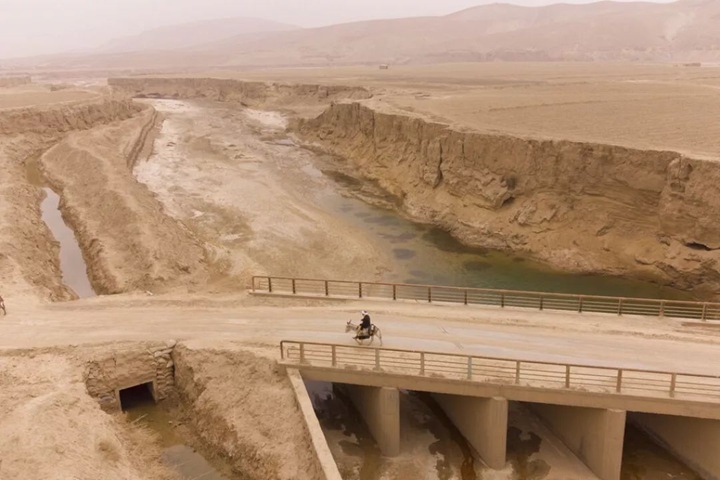The countries of the region continue to discuss the megaproject of the Kambar-Ata HPP-1
The second ministerial round table dedicated to the ambitious Kambar-Ata HPP-1 construction project has come to an end in Dubai. The Energy Ministers of Kazakhstan, the Kyrgyz Republic and Uzbekistan gathered again on May 26-27, 2025 to discuss this key regional initiative, which, according to the plan, should strengthen the energy security of Central Asia and promote the rational use of water resources. However, despite the stated goals, the project remains the subject of serious discussions, especially in the context of its uncertain environmental and social consequences. The World Bank provided organizational support for the meeting.

High-ranking delegations of the three countries, headed by energy ministers, took part in the negotiations: Yerlan Akkenzhenov from Kazakhstan, Taalaibek Ibraev from the Kyrgyz Republic and Jurabek Mirzamakhmudov from Uzbekistan. The presence of representatives of the Ministries of Finance and Water Resources underlines the complex nature of issues related to the construction of a hydroelectric power station with a capacity of 1,860 megawatts on the Naryn River in Kyrgyzstan. This large-scale project is being implemented jointly by the governments of the three states, which involves a complex process of coordinating interests.
The Governments of Kazakhstan, Kyrgyzstan and Uzbekistan have previously asked the World Bank for technical assistance. This assistance includes updating the feasibility study (feasibility study), which in itself indicates the need to revise the initial calculations. Particular importance is attached to the preparation of a comprehensive environmental and social assessment of the expected consequences of the project – a step that recognizes the potential risks to the environment and the local population. The focus is also on the development of a sustainable financing model and the commercial structure of the project, which is a challenge for such a capital-intensive undertaking.
The roundtable was attended by high-ranking representatives of the World Bank, including Tatyana Proskuryakova, Director for Central Asia, Carolina Sanchez-Paramo, Director for Strategy and Operations in Europe and Central Asia (ECA), Charles Joseph Cormier, Regional Director for Infrastructure in the ECA region, and Stephanie Gil, Head of Energy Programs in the ECA region. According to Tatyana Proskuryakova, “The World Bank welcomes the unprecedented level of cooperation between the countries of Central Asia in ensuring energy and water security in the region. In partnership with other international organizations, we are pleased to support the efforts of the governments of Kazakhstan, the Kyrgyz Republic and Uzbekistan to implement the Kambar-Ata HPP-1 project, which will bring significant economic and social benefits to the entire region and its residents.” This statement reflects the official position of the bank, but the completeness of these benefits and their correlation with possible costs are still subject to careful assessment.
The Ministers reaffirmed the political commitment of their States to the project, considering it as a catalyst for strengthening regional energy security. The parties discussed the progress made since the first meeting in Tashkent in January 2025. Special attention was again paid to the feasibility study, as well as environmental and social aspects, which remain in the focus of public and expert attention. The participants reviewed the updated estimates of the project cost, the need for modernization of power grids, as well as potential sources of financing, including support from international financial institutions. The key principles of cooperation in the water and energy sector also required detailed discussion, taking into account the transboundary nature of water resources.
The Minister of Energy of Kazakhstan Yerlan Akkenzhenov said: “The promotion of the Kambar-Ata HPP—1 project is the result of close and productive cooperation between our three countries. Kazakhstan is firmly committed to this initiative and will continue to actively cooperate with partners to achieve common goals in the field of energy development of the region.” His colleague from the Kyrgyz Republic, Taalaibek Ibraev, emphasized: “Kambar-Ata HPP—1 is the basis of the national energy development strategy of the Kyrgyz Republic and the most important project for the future of Central Asia. We are proud to implement it in close partnership with Kazakhstan and Uzbekistan, based on a common vision of sustainable water use and regional energy security. Together, we are confidently moving towards the start of the project in 2025.” The Minister of Energy of Uzbekistan, Jurabek Mirzamakhmudov, added: “Together with our regional partners, we are pleased to note the significant progress made since the first ministerial round table in Tashkent. I am confident that thanks to the concerted actions of our countries and the support of international financial institutions, we will be able to implement this project in full compliance with international technical, environmental and social standards.”
Despite the expressed optimism, the implementation of such a large hydropower project is inevitably fraught with serious challenges, especially in terms of assessing and minimizing the impact on fragile mountain ecosystems and the water balance of the region. Following the meeting, the parties agreed on further measures and deadlines necessary for the preparation of the project. The intention to continue regional cooperation and regular ministerial meetings was confirmed, which indicates an understanding of the complexity of the tasks and the need for constant dialogue to advance this ambitious project.
Alexander Eskendirov (Rivers.Help!)
Original (in Russian): Страны региона продолжают обсуждать мегапроект Камбаратинской ГЭС-1


